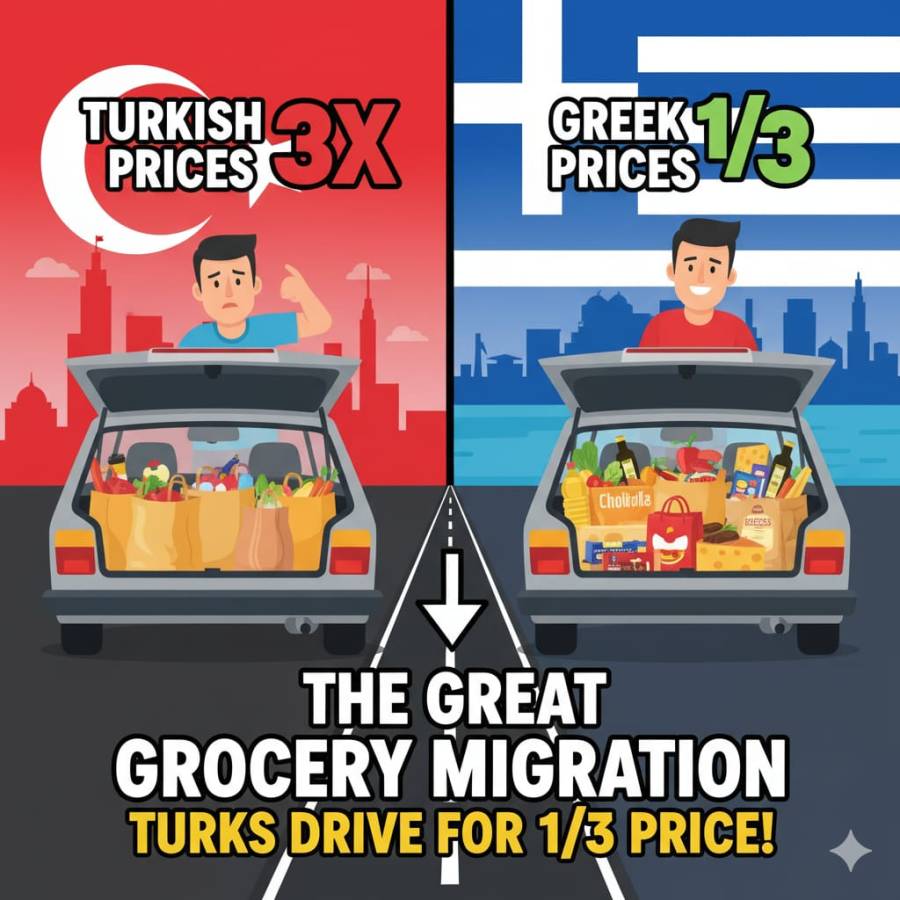
Almost every month, Cihan Çıtak sets out on a four-hour journey that has become part of his life. With his passport in hand, the Istanbul resident drives the 40 kilometres past the Turkish border into the Greek seaside city of Alexandroupolis. This trip is not about leisure or sightseeing. It is a mission to fill his car with groceries—wine, cheese, chocolates, and meat—that cost far less than they do back home. For Çıtak, this cross-border routine captures the harsh reality of Turkey’s soaring inflation and the shrinking value of everyday earnings.
The border has become a symbol of changing fortunes. A few years ago, the direction of shopping traffic was reversed. Greeks used to come to Turkey to take advantage of a stronger euro and lower Turkish prices. Now the situation has completely changed. A litre of olive oil that sells for about €10 in Greece can cost nearly twice as much in Turkey. Çıtak, who works as a general manager in the food and beverage sector, says his entire grocery trip costs roughly one-third of what he would spend in Istanbul. The price gap for staples like Gouda cheese, Kinder chocolates, and meat remains just as wide.
This strange shopping pattern is rooted in Turkey’s ongoing economic turmoil. While countries in the Eurozone, including Greece, have kept inflation under control at around 2 percent, Turkey’s rate has soared far higher. Food prices alone have been rising by more than 30 percent each year. The sharp fall in the Turkish lira against the euro has made imported goods even more expensive, leaving many households struggling to make ends meet.
The government has tried to fight inflation by keeping interest rates high. The move has helped the lira regain some strength, but it has not reversed years of steep price increases. For many middle-class families, shopping in Greece has become less of a novelty and more of a necessity.
What began as a few adventurous trips has now turned into a steady movement. Çıtak jokingly says that “Turks have invaded Alexandroupolis,” and he is not far from the truth. Reports suggest that around six percent of all Turks crossing the border now do so mainly to shop. Travel companies in Istanbul, Çanakkale, and Bursa have even started offering one-day bus tours to Alexandroupolis for about €50. Every weekend, Turkish shoppers fill the aisles of Greek supermarkets like Lidl, Jumbo, and Metro, calculating how much they have saved instead of how much they have spent.
This new migration tells a larger story about the cost-of-living crisis gripping Turkey. The long drive for cheaper cheese or chocolates is not a sign of luxury but a desperate way to stretch household budgets. The stability of the euro and Greece’s modest prices have become a temporary lifeline for families squeezed by runaway inflation. For many Turks, the road to Alexandroupolis has become not just a shopping route but a quiet protest against economic hardship at home.





















